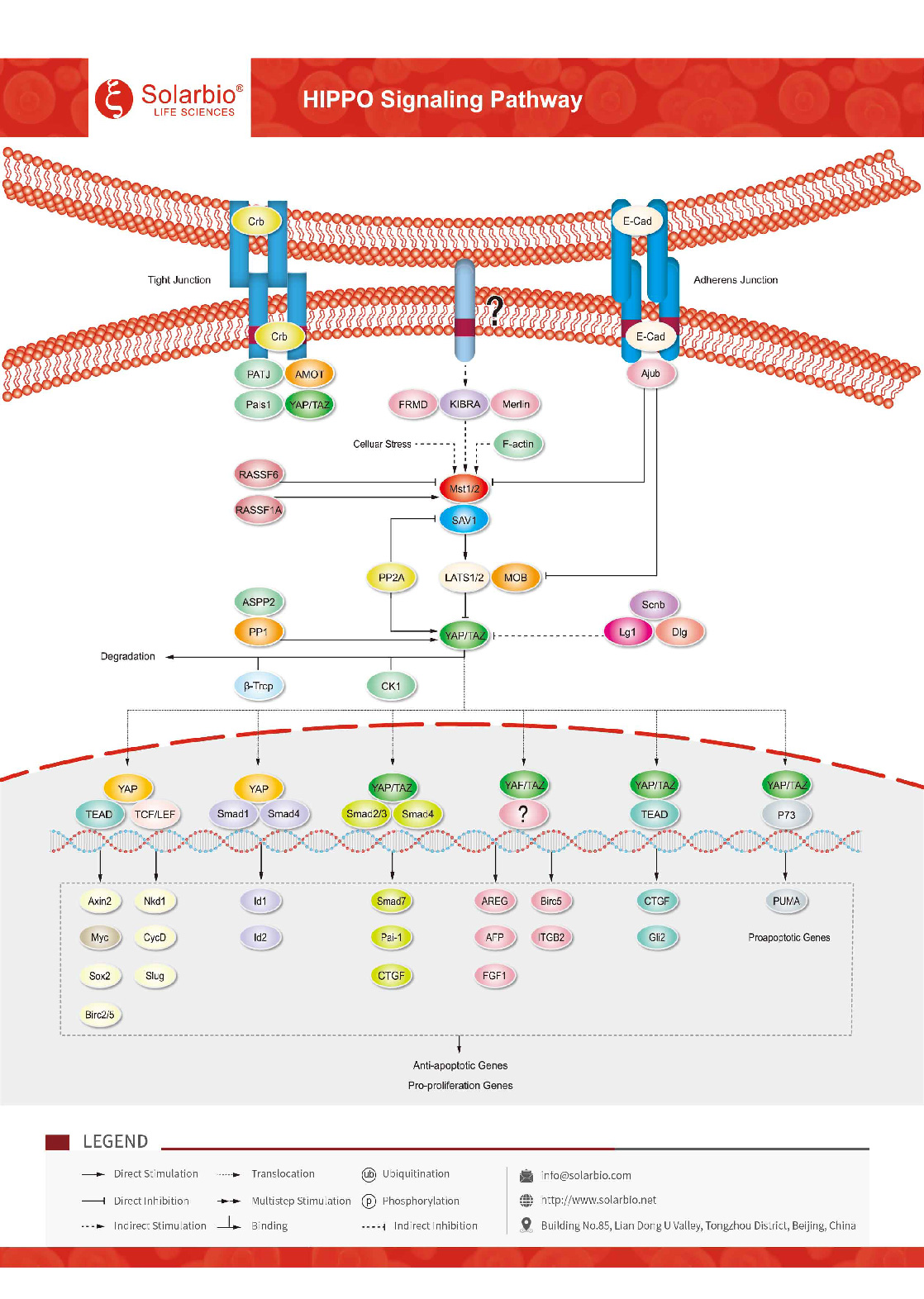HIPPO Signaling Pathway
HIPPO is an evolutionarily conserved signaling pathway, named after the protein kinase Hippo in Drosophila, which is a key regulator in the pathway. Consisting of a group of conserved kinases, which control organ size by regulating cell proliferation and apoptosis, is a pathway that inhibits cell growth. Dysregulation of HIPPO signaling leads to massive tissue overgrowth. In humans and mice, the pathway consists of the MST1 and MST2 kinases (homologues of Drosophila Hippo), their cofactors Salvador, and LATS1 and LATS2. In response to high cell density, activated LATS1/2 phosphorylates the transcriptional coactivators YAP and TAZ, promoting their cytoplasmic localization, leading to apoptosis and limiting organ-size overgrowth. When the Hippo pathway is inactivated at low cell density, YAP/TAZ translocate into the nucleus and bind to the transcription enhancer of transcription factor (TEAD/TEF) family of transcription factors, thereby promoting cell growth and proliferation. YAP/TAZ also interacts with other transcription factors or signaling molecules through which processes mediated by the Hippo pathway are interconnected with processes in other key signaling cascades, such as those mediated by TGF-β and Wnt growth factors. Recent studies have confirmed that Hippo signaling pathway also plays an important role in cancer occurrence, tissue regeneration and the regulation of stem cell function.









